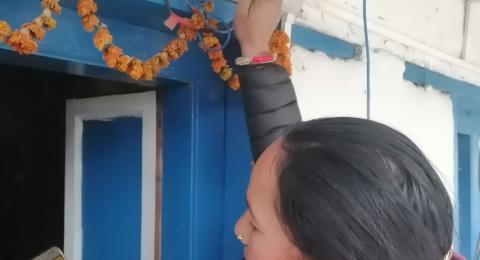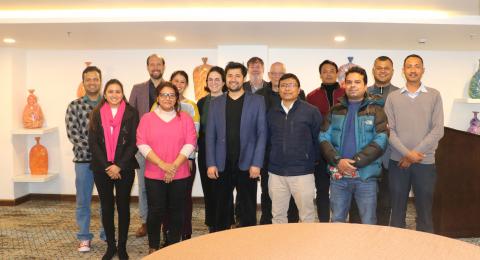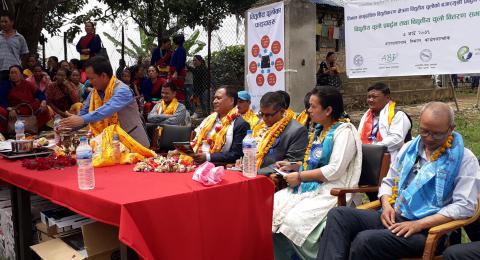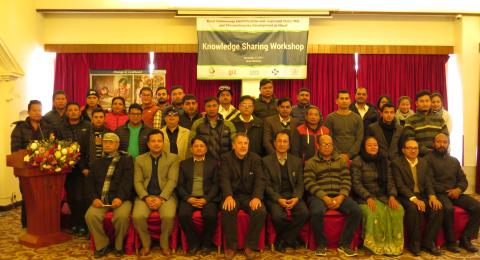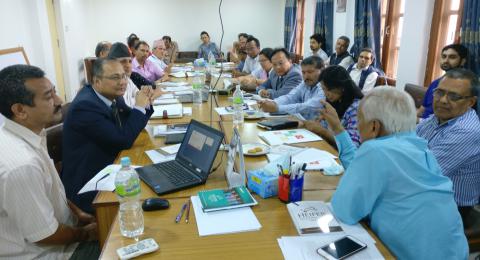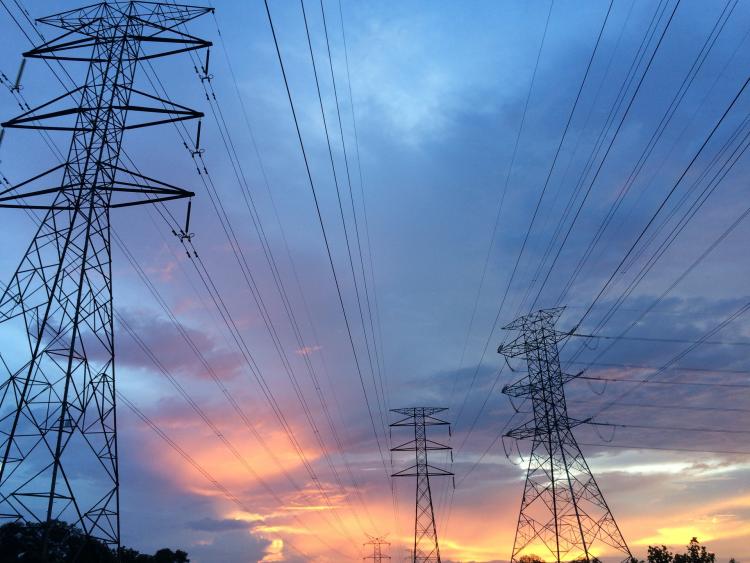
The global multi-stakeholder Vienna Energy Forum took place on 9-12 May 2017. It brought together all sectors of society and participants from all over the world, thereby paving the way for tangible partnerships on the ground.
As a leading international energy access programme, EnDev was invited to join a panel discussion of the World Bank to debate the progress of the Multi-Tier Framework (MTF) survey, and organised two side events on measuring energy access together with KfW and the World Bank.
Energy Access Redefined: Emerging Findings from the Global MTF Survey
The Global Energy Access Survey – currently underway in 15 high access deficit countries – is the first survey to apply the new Multi-Tier Framework (MTF) methodology for measuring energy access, developed by ESMAP. This approach goes beyond traditional connections, capturing the full range of grid and off-grid solutions, by measuring the quality of access to electricity and cooking energy.
Together with representatives of the Scaling up Renewable Energy Program (SREP), the Global Off-Grid Lighting Association (GOGLA) and ESMAP, EnDev’s programme director Carsten Hellpap discussed the potentials and challenges of the MTF.
The panellists of this session concluded that the MTF methodology might contribute to a mind shift in national governments, towards the understanding of limitations to grid infrastructure and the need for off-grid electricity solutions. The ESMAP publication of results of the global survey is awaited with excitement.
Improving Energy Access: Harmonising Counting Methodologies to Monitor Progress for Access to Electricity
This side event offered a platform to discuss the challenge of harmonising counting methodologies for access to electricity taking different reporting needs and different project types and approaches into consideration. The panellists, representing ESMAP, DGIS, EnDev and KfW, shared their experience and methodological approaches to monitoring electricity access from off-grid electricity supply, grid-connected electricity supply, demand-side energy efficiency programmes and general technical assistance programmes with long impact chains. Central topic was the MTF for measuring energy access.
Need for aligning tracking methodologies
The participants acknowledged the need for harmonisation and showed interest for aligning tracking methodologies. It was also agreed that the issue of attribution and double-counting is particularly complex, and may not be completely resolved. EnDev works on a methodology to estimate MTF results for picoPV products, which could be applicable to other technologies as well. All methodologies that are being developed, however, need to be validated.
Measuring Access to Modern Cooking Energy: Developing a Monitoring Framework to Measure Access to Modern Cooking Energy Services
Measuring the progress of access to cooking energy poses a challenge both in terms of the results achieved so far and in terms of the methodology and harmonisation of a universal framework. The panellists from ESMAP, EnDev and WHO discussed reasons for the low – and still binary – reporting as well as progress towards harmonising methodologies and approaches.
While the MTF for cooking provides an opportunity to go beyond binary assessments, it awaits consensus on how to establish lower-quality health-related indicators and on efficiency and safety. The WHO, as custodian for development of an assessment approach for SDG 7 Indicator 7.1.2 on clean cooking technologies and fuels, focuses on health impacts.
EnDev's evaluation approach - the Cooking Energy System (CES)
EnDev developed an evaluation approach which reflects not only the stove and the fuel but the cooking energy system in its entirety, including the kitchen characteristics, ventilation, and the user. The approach has a lot of similarities with the MTF as most attributes are the same or similar. It provides a multi-dimensional, multi-tier assessment framework.
The panellists from ESMAP, WHO and EnDev are committed to contribute to concluding on the attributes, thresholds, and methodologies. The MTF will contribute more detailed and nuanced information to the WHO reporting. In terms of harmonisation, and to support countries monitor their progress towards attaining universal access to clean fuels and technologies, WHO will include reporting the use of ‘transitional’ fuels and technologies, in addition to primary reliance on ‘clean fuels and technologies’. All three participating programmes are committed to further develop the MTF to be applicable for data evaluation obtained from global surveys.


